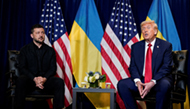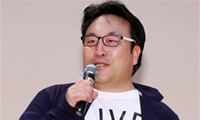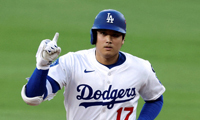The Aliens Are Attacking. Cue the String Section.
In the video game BioShock turbulent Rachmaninoff-like music plays while an evil composer named Cohen shouts, “Presto, presto” before incinerating a hapless pianist and his instrument. In Battlefield: Bad Company gamers hear a string quintet playing earthy music redolent of Bartok. In Alone in the Dark: Inferno the evocative timbre of the female choral group the Mystery of Bulgarian Voices adds to the suspense as the hero fights for survival in Central Park.
These are just a few of the recent soundtracks written and performed by classically trained musicians who are finding new outlets for their talents in the booming video game industry.
Not long ago such work“felt like a throwaway for composers who couldn’t get work elsewhere,”said Steve Schnur, worldwide executive for music and marketing at the software giant Electronic Arts, said that the primitive beeps and whirs of early games were created hastily and late in the development process. Now musical scores - whether rock, rap or classical - are becoming an integral part of the finished product, often lavishly produced and seamlessly embedded into the story lines and gaming action. At its best, Mr.Schnur said, music “is the reason for the emotional response that games never had 10 to 20 years ago.”
The care now lavished on classical soundtracks is evident not only in the impressive quality of many scores but also in the first-rate performers recruited to record them. Mikael Karlsson’s orchestral music for Battlefield is performed by a 70-piece ensemble (including members of the chamber group Alarm Will Sound and the International Contemporary Ensemble) conducted by Alan Pierson. Wolfram Koessel, a member of the American String Quartet, performs the melancholy cello solos.
Martin Chalifour, concertmaster of the Los Angeles Philharmonic, performs the eerie concertolike solo in “Welcome to Rapture,” part of Garry Schyman’s score for Bio- Shock. In Prince of Persia, Stuart Chatwood plays the oud and other instruments to add an exotic touch to Inon Zur’s sweeping orchestral score.
The field has also attracted major film composers like Danny Elfman, Howard Shore and Hans Zimmer. The composer Michael Giacchino began his career writing for games (including the Medal of Honor series) before branching into film and television. And more composers might follow his path now that schools like the Berklee College of Music in Boston have started game scoring classes.
For composers and performers accustomed to struggling to find steady work even in flush times, there’s good money to be made in an industry that, according to the NPD research group, generated $21.6 billion in retail sales in the United States alone in the 12 months that ended in November.
Tommy Tallarico, a game composer who founded the Game Audio Network Guild to promote the field, said the typical fee for a composer is $1,000 per minute of music, with top names making up to $2,000. For a typical game, which requires one to two hours of music, a composer could make $60,000 to $240,000.
The increasingly nuanced scores reflect“the growing maturity of the games industry, which is getting better at storytelling”and weaving moral dilemmas into game plots, said Sean Decker, general manager at DICE, the division of Electronic Arts that created Battlefield.
Olivier Deriviere, who wrote the music for Alone in the Dark, said complicating the process was that the score was usually created separately from the game’s actual production, making alignment of story and score especially difficult. On the plus side composers have more time to write than their counterparts in the film industry.
Some systems, like the Xbox 360, allow gamers to create custom soundtracks using MP3s. But many players appreciate the attention software companies dedicate to music. In the Virgin Megastore in Union Square in Manhattan, Atticus Wakefield, 10, said,“Music and the sound really give the game more depth and make it much better to play.”
Composers can attract more attention with game scores than with film or concert music, even as they draw new listeners to classical music. Performers also see the potential: the pianist Lang Lang, for example, has indicated he would like to create a game like Guitar Hero.
Mr.Tallarico, who considers games“the radio of the 21st century,”said he created Video Games Live, a multimedia concert series featuring music from popular games, to“prove to the world how culturally significant video games have become.”
Mr.Tallarico became interested in composing after hearing Mr.Williams’s soundtrack to “Star Wars” as a child, which prompted his interest in the symphonic music of Mozart and Beethoven.“If Beethoven were alive today, he’d be a video game composer,”he said.
스마터리빙
more [ 건강]
[ 건강]이제 혈관 건강도 챙기자!
[현대해운]우리 눈에 보이지 않기 때문에 혈관 건강을 챙기는 것은 결코 쉽지 않은데요. 여러분은 혈관 건강을 유지하기 위해 어떤 노력을 하시나요?
 [ 건강]
[ 건강]내 몸이 건강해지는 과일궁합
 [ 라이프]
[ 라이프]벌레야 물럿거라! 천연 해충제 만들기
 [ 건강]
[ 건강]혈압 낮추는데 좋은 식품
[현대해운]혈관 건강은 주로 노화가 진행되면서 지켜야 할 문제라고 인식되어 왔습니다. 최근 생활 패턴과 식생활의 변화로 혈관의 노화 진행이 빨라지고
사람·사람들
more많이 본 기사
- 대만이슈 돌출로 美中 ‘삐걱’…내년 4월 트럼프 방중前 기싸움?
- 작년 운용자산 5조5천억달러…갑부들의 ‘패밀리오피스’ 월가 새 강자로
- LA 등 서부에 사흘째 폭우…동부엔 폭설 예보
- 위성락, 유엔 사무총장에게 방북 요청한듯…대통령실 “확인 어렵다”
- 미국, 美방산기업 제재한 中에 “대만 무기판매 보복 강력반대”
- ‘역대 최연소’ 백악관 대변인 레빗, 둘째 임신 공개
- [이지 사이언스] “온난화 막으려면 세계인구 44% 식단 바꿔야…문제는 소고기”
- 통일교 ‘키맨’ 윤영호·송광석 재조사… ‘공소시효 난제’ 풀까
- 한인 식당서 이콜라이 집단 식중독
- “올해 최고 주목받은 테크 거물은 머스크 아닌 래리 엘리슨”
- 루비오 국무장관, 트럼프가 민 온두라스 당선인과 통화… “명확한 승리”
- 소싯적 ‘치기어린’ 주소 “굿바이”…지메일 주소변경기능 도입
- “엔비디아, AI칩 스타트업 인수 아닌 기술 계약으로 규제 회피”
- 트럼프, 종전안 들고오는 젤렌스키에 “내승인前엔 아무것도 없다”
- 하원 지일파 의원들, 中의 日강압 규탄하며 행정부 대응 촉구
- 이혁재가 또.. “빌려간 3억원 안 갚아” 사기 혐의로 피소
- 무면허 건축업자 ‘계약사기’ 집중 단속
- 뼈 건강에 커피가 더 좋을까, 차가 더 좋을까?
- [주말 뭐 볼까 OTT] 상실과 전쟁 속 가족의 초상, 다시 열린 ‘판도라’
- ‘손흥민 감격의 첫 우승’ 올해 축구계 기적 톱8 선정 ‘선수로는 유일’
- 물류거점창고에 불체자 8만명 수용 추진
- ‘마약 혐의’ 남양유업 3세 황하나 구속… “증거인멸 우려”
- “반갑다 상승 정체”… 11월 주택 판매량 3년래 최고
- 8시즌 뛰고 ML 역대 17위 “오타니 GOAT 될 것”, ML 역대 50인 선정
- 크리스마스 연휴… 오픈한 샤핑몰 ‘북적’
- 젤렌스키 “28일 트럼프와 종전안 논의…영토·원전 외 90% 완성”
- 관세폭풍 여파… “통관강화속 소포 파손·폐기·배송지연 속출”
- [한국춘추] 미국의 힘
- “출생시민권은 사기”⋯ 이민 2세대 공격 초점 맞춘 트럼프
- 2025 한인사회 10대 뉴스
- ‘손흥민 vs 메시’ 2026 MLS 개막전서 세기의 맞대결 예고
- 새해 더 중요해지는 노동법 준수
- “온 세상에 희망·평화의 빛 스며들길”
- 北노동신문 접근 쉬워진다…정부, 일반… 1
- ‘학자금 상환’ 안하면 임금압류
- [캐슬린 파커 칼럼] 지미 라이의 마지막 희망
- 내년 보험료 급등 우려 오바마케어 가입 감소
- ‘손흥민 vs 메시’… 2026 MLS 개막전서 세기의 맞대결 예고
- “이재명 부친 야반도주” 주장한 전직… 2
- VA·MD 7명 생굴 먹고 식중독…22개주 60여명 감염
- 한인 2세, 드라마 ‘런’ 주연 맡아
- ‘수술’ 네이마르, ·호날두… 2026 월드컵, 레전드들의 선택은?
- 트럼프 관세에…고급 와인 시장도 ‘휘청’
- ‘LA 강’에 산책·자전거길 조성, … 1
- [금요단상] 비자 발급
- 2026년 변경되는 소셜연금
- 펠로시 딸도 부시 사촌도…정치인 2세 등 내년 선거 출사표
- 미성년자와 성관계 체조코치 체포
- 연말연시, 안전하고 차분하게
- 엔비디아 200억달러 베팅… 구글 설계자·기술 빼돌려
1/5지식톡

-
 미 육군 사관학교 West Poin…
0
미 육군 사관학교 West Poin…
0https://youtu.be/SxD8cEhNV6Q연락처:wpkapca@gmail.comJohn Choi: 714-716-6414West Point 합격증을 받으셨나요?미 육군사관학교 West Point 학부모 모…
-
 ☝️해외에서도 가능한 한국어 선생님…
0
☝️해외에서도 가능한 한국어 선생님…
0이 영상 하나면 충분합니다!♥️상담신청문의♥️☝️ 문의 폭주로 '선착순 상담'만 진행합니다.☎️ : 02-6213-9094✨카카오톡ID : @GOODEDU77 (@골뱅이 꼭 붙여주셔야합니다…
-
 테슬라 자동차 시트커버 장착
0
테슬라 자동차 시트커버 장착
0테슬라 시트커버, 사놓고 아직 못 씌우셨죠?장착이 생각보다 쉽지 않습니다.20년 경력 전문가에게 맡기세요 — 깔끔하고 딱 맞게 장착해드립니다!장착비용:앞좌석: $40뒷좌석: $60앞·뒷좌석 …
-
 식당용 부탄가스
0
식당용 부탄가스
0식당용 부탄가스 홀세일 합니다 로스앤젤레스 다운타운 픽업 가능 안녕 하세요?강아지 & 고양이 모든 애완동물 / 반려동물 식품 & 모든 애완동물/반려동물 관련 제품들 전문적으로 홀세일/취급하는 회사 입니다 100% …
-
 ACSL 국제 컴퓨터 과학 대회, …
0
ACSL 국제 컴퓨터 과학 대회, …
0웹사이트 : www.eduspot.co.kr 카카오톡 상담하기 : https://pf.kakao.com/_BEQWxb블로그 : https://blog.naver.com/eduspotmain안녕하세요, 에듀스팟입니다…
케이타운 1번가
오피니언

새해 더 중요해지는 노동법 준수

연말연시, 안전하고 차분하게
 캐슬린 파커 워싱턴포스트 칼럼니스트
캐슬린 파커 워싱턴포스트 칼럼니스트 [캐슬린 파커 칼럼] 지미 라이의 마지막 희망
 유경재 나성북부교회 담임목사
유경재 나성북부교회 담임목사 [한국춘추] 미국의 힘
 전병두 서북미수필가협회 회원
전병두 서북미수필가협회 회원 [금요단상] 비자 발급
 박일근 / 한국일보 수석논설위원
박일근 / 한국일보 수석논설위원 [지평선] 스님의 주례사
 신상철 / 고려대 고고미술사학과 교수
신상철 / 고려대 고고미술사학과 교수 [미술 다시보기] 신의 모습을 닮고자 한 예술가
 스티브 강 전 한인민주당협회 회장
스티브 강 전 한인민주당협회 회장 [스티브 강 ‘인사이드 미국’] 2026 중간선거: 트럼프 지지율 하락이 말해주는 것
 김홍일 케이유니콘인베스트먼트 대표
김홍일 케이유니콘인베스트먼트 대표 [기고] 안정의 기준은 어떻게 제도가 되었나
1/3지사별 뉴스

물류거점창고에 불체자 8만명 수용 추진
도널드 트럼프 행정부가 이민자 구금·추방을 효율화하기 위해 전국 물류거점 창고에 8만명 규모의 수용시설 확보를 추진한다고 24일 워싱턴 포스트…
‘학자금 상환’ 안하면 임금압류

“온 세상에 희망·평화의 빛 스며들길”
가자지구와 우크라이나에서의 전쟁, 고립과 불평등으로 세상이 어지러운 가운데 워싱턴 지역 각급 한인교회와 성당들이 성탄절을 맞아 일제히 예배와 …
“연말은 스트레스·새해 결심은 없다”

‘손흥민 vs 메시’ 2026 MLS 개막전서 세기의 맞대결 예고
LA 풋볼클럽(LAFC)가 2026시즌 MLS 정규리그 일정을 공식 발표하며 한인 축구 팬들의 시선을 한몸에 받고 있다. LAFC는 오는 20…
[새해부터 이렇게 달라진다] 최저임금 또 오르고… 유급 병가는 더 확대

오늘 하루 이 창 열지 않음 닫기 





















































.png)


댓글 안에 당신의 성숙함도 담아 주세요.
'오늘의 한마디'는 기사에 대하여 자신의 생각을 말하고 남의 생각을 들으며 서로 다양한 의견을 나누는 공간입니다. 그러나 간혹 불건전한 내용을 올리시는 분들이 계셔서 건전한 인터넷문화 정착을 위해 아래와 같은 운영원칙을 적용합니다.
자체 모니터링을 통해 아래에 해당하는 내용이 포함된 댓글이 발견되면 예고없이 삭제 조치를 하겠습니다.
불건전한 댓글을 올리거나, 이름에 비속어 및 상대방의 불쾌감을 주는 단어를 사용, 유명인 또는 특정 일반인을 사칭하는 경우 이용에 대한 차단 제재를 받을 수 있습니다. 차단될 경우, 일주일간 댓글을 달수 없게 됩니다.
명예훼손, 개인정보 유출, 욕설 등 법률에 위반되는 댓글은 관계 법령에 의거 민형사상 처벌을 받을 수 있으니 이용에 주의를 부탁드립니다.
Close
x